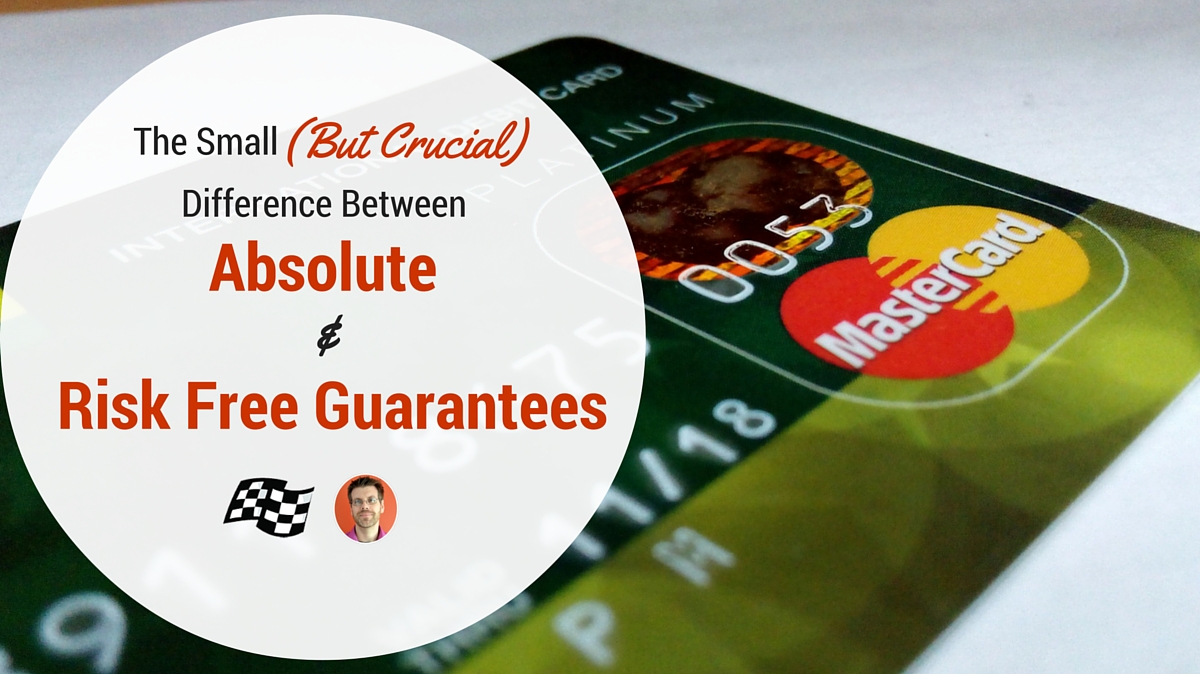
When it comes to providing content-oriented security assurances for your visitors, there is almost nothing better than offering some kind of guarantee. There are a lot of ways to guarantee your products or services, but they all fall into two general categories:
Absolute Guarantee. This tells the shopper that the product won’t fail and that they’ll get the results they expect.
Risk Free Guarantee. This tells the shopper that the product may fail, but if/when it does, they will be taken care of.
Accounting for Usage
Honestly, there is often very little difference between the two. Both guarantees may have the same restrictions (time limits, usage, etc.), but the absolute guarantee seems more certain, while also less plausible than the risk-free guarantee.
One of the problems with offering guarantees is you have to account for usage. A doctor can no more guarantee good health to a person who refuses to diet and exercise than a battery can guarantee to start a car if the headlights get left on all night. As such, guarantees have to consider real-world conditions and take user behavior into account.
Results are the most difficult thing to guarantee. You can’t get results if the customer doesn’t use the product right. A shampoo that guarantees to clean hair with just one application probably won’t work if the amount used is too little and the hair hasn’t been washed for several weeks. Under normal conditions, however, the guarantee would hold true.
When using guarantees, you have to carefully consider exactly what you are guaranteeing and the proclivity of your audience to abuse it. Guaranteeing a $4 bottle of shampoo is vastly different than guaranteeing a $2000 machine. Yet, offering a guarantee on the more expensive machine will provide far more security to the shopper than the bottle of shampoo.
The Hidden Danger of Absolute Guarantees
The risk of the absolute guarantee is that it can lack credibility. Web marketing offers a great real-world example. Someone who guarantees top search engine rankings (absolute) is likely up to something sketchy. But the web marketer who offers a satisfaction guarantee (risk free) on a particular service, such as a website audit, offers far more credibility.
Regardless of what you guarantee, you’ll get far more mileage out of it if you are absolutely clear up front what the expectations are. Offering risk-free guarantees can ease your shopper’s worries about what happens if the product isn’t what they expected. Whether it’s guarantees for shipping, endurance, or results, a good guarantee gives added confidence to the shopper.
Be sure to spell out exactly what is being guaranteed, what voids the guarantee, and what will happen when the product doesn’t get the expected results.
Use natural language, not legalese, to spell out exactly what the guarantee covers so your shoppers will have no disappointment later. If you find guarantees that don’t offer this, buyer beware! Chances are there is something hidden in the small print.
Checklist for Offering Guarantees
- Use natural language, not legalese
- Spell out exactly what is and isn’t covered
- Provide an easy way to report an issue
- Provide assurances for when the submitter will receive a reply
- Follow through and don’t disappoint
